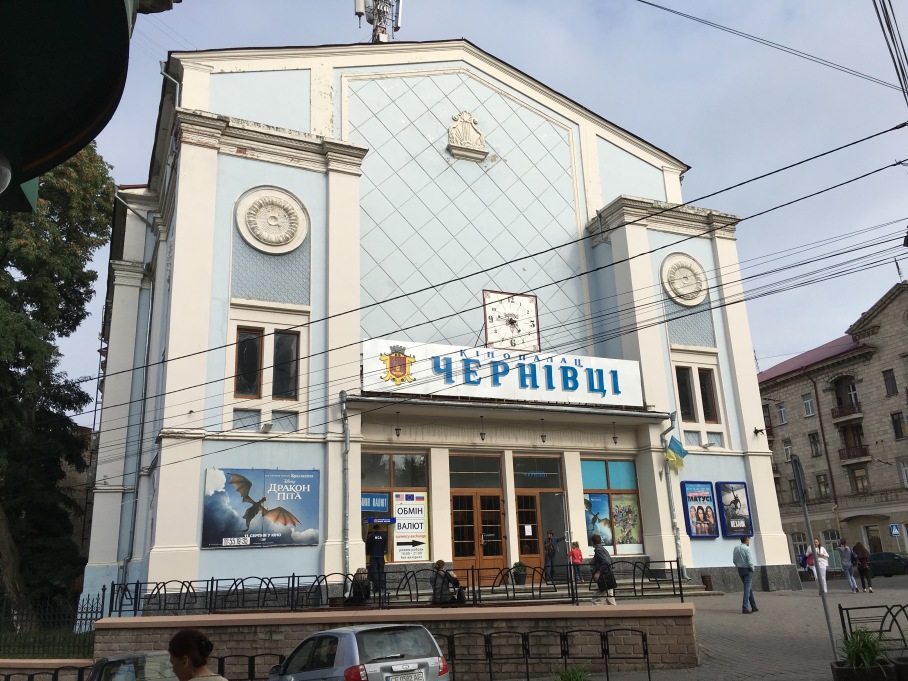We woke up to a fresh load of laundry, courtesy of Oleg’s aunt, and a traditionally ginormous breakfast- potato vareniki and sour cream.
Nazar 1 swung by to say farewell, we traded contact information, and just like that, we were off.
In hindsight, our car breaking down will probably stand to be the best part of our journey. Sure, we had to take a couple things out of the itinerary, but having the opportunity to get to know Ukrainians our age was a priceless experience, one that I will remember for the rest of my life. My time in Nadvirna completely crushed my preconceived notions about Ukrainians. Our friends were the warmest, most generous, hospitable people in recent memory. I asked myself many times if I would’ve extended the same hospitality to foreign travelers in America, I can’t say I would’ve before my time in Nadvirna. I hope that I would now.
It would be remiss to not mention the self-sufficiency that we witnessed in Nadvirna. They grew and prepared their own food, they fixed their own cars, they built their own homes. Even the young children could be seen walking in groups from place to place alone. Our friends experienced the weekend not in movie theaters or shopping malls but in the rivers and waterfalls that surrounded them. My time in Nadvirna really put things in perspective. I have already made tentative plans to meet my new friends in Kiev, when I visit from Lithuania to see a few nearby shtetls.

Around 10:00 Chase and I started our drive south to Chernivtsi. I think I was still a bit scared from Saturday’s happenings. I journaled while Chase drove.
We arrived in Chernivtsi without a hotel reservation, but managed to find lodging for a good price right off the city square.

While our room was being prepared I was able to pull up a guide on my phone and also studied the history of the city. For the majority of the past millennium, Chernivtsi belonged to the Kingdom of Moldavia. In the 16th century, the Kingdom of Moldavia became the northernmost region of the Ottoman Empire, When Russia crushed the Ottomans in the late 18th century, Russia acquired the eastern region of Moldavia and deemed it ‘Bessarabia’, and Austria, who brokered the deal, received the northern region of Moldavia and deemed it ‘Bukovina’. Chernivtsi became the capital of Bukovina, and thus endured it’s greatest growth during this period.
The roads were black cobblestone, like Lviv, and the buildings were similar in stature and color to those in Lviv. But unlike Lviv, the streets were relatively quiet and uncrowded.


After a brief lunch we started down our route. Like Lviv, a handful of the sights were churches.


We quickly learned just how small the city was and were soon able to navigate to and from the hotel with ease.

I made a point to seek out the sights of Jewish relevance, of which few which few remained, including the old Jewish theater, the old Jewish synagogue (now a cinema), and a museum to the Jews of Bukovina (which was unfortunately closed).


We were very impressed by the university, built in the mid-19th century.

We walked back to the hotel and then took a short drive to the Jewish cemetery. Unlike others that we had visited, the Chernivtsi Jewish cemetery was in relatively good condition. There were headstones in Hebrew, German and Russian, and of all shapes and sizes, reflective of the varying degrees of assimilation of Chernivtsi’s Jews.

There was a beautiful view of the city from the cemetery.

We drove to the hotel and then made our way back into the city for dinner. Unfortunately there was a miscommunication with the waiter and I was served an extra course, but I paid for it anyways to avoid confrontation. The city sure was beautiful at night though.

Chase graciously agreed to go back to the hotel around 9:00 so that I could catch up on my writing.

Pingback: 03 December 2016 | The Shtetl Shlepper